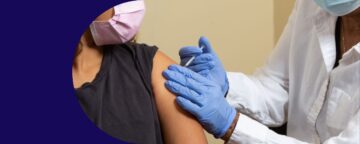A paper by APPC researchers identifies the advantages of an innovative approach to countering misinformation called “bypassing," which may have advantages over the standard approach to correcting inaccurate statements.


A paper by APPC researchers identifies the advantages of an innovative approach to countering misinformation called “bypassing," which may have advantages over the standard approach to correcting inaccurate statements.

In a study, Annenberg researchers sought to uncover whether the threat of misinformation drives Americans to seek out news sources that reflect their own political beliefs.

An APPC study finds more social media use correlates with more vaccination, but the reason for this is different for Democrats and Republicans.

A report from the Annenberg Public Policy Center explains why the federal vaccine safety reporting system, or VAERS, should be renamed.

The Annenberg Public Policy Center has received support from the Robert Wood Johnson Foundation to expand a new model for blunting the impact of deceptive claims about health.

FactCheck.org has released its list of the Whoppers of '22, its annual review of the year's worst political and viral deceptions. Political appeals to fear were as popular as ever -- and Covid-19 misinformation continued to be a huge problem online.